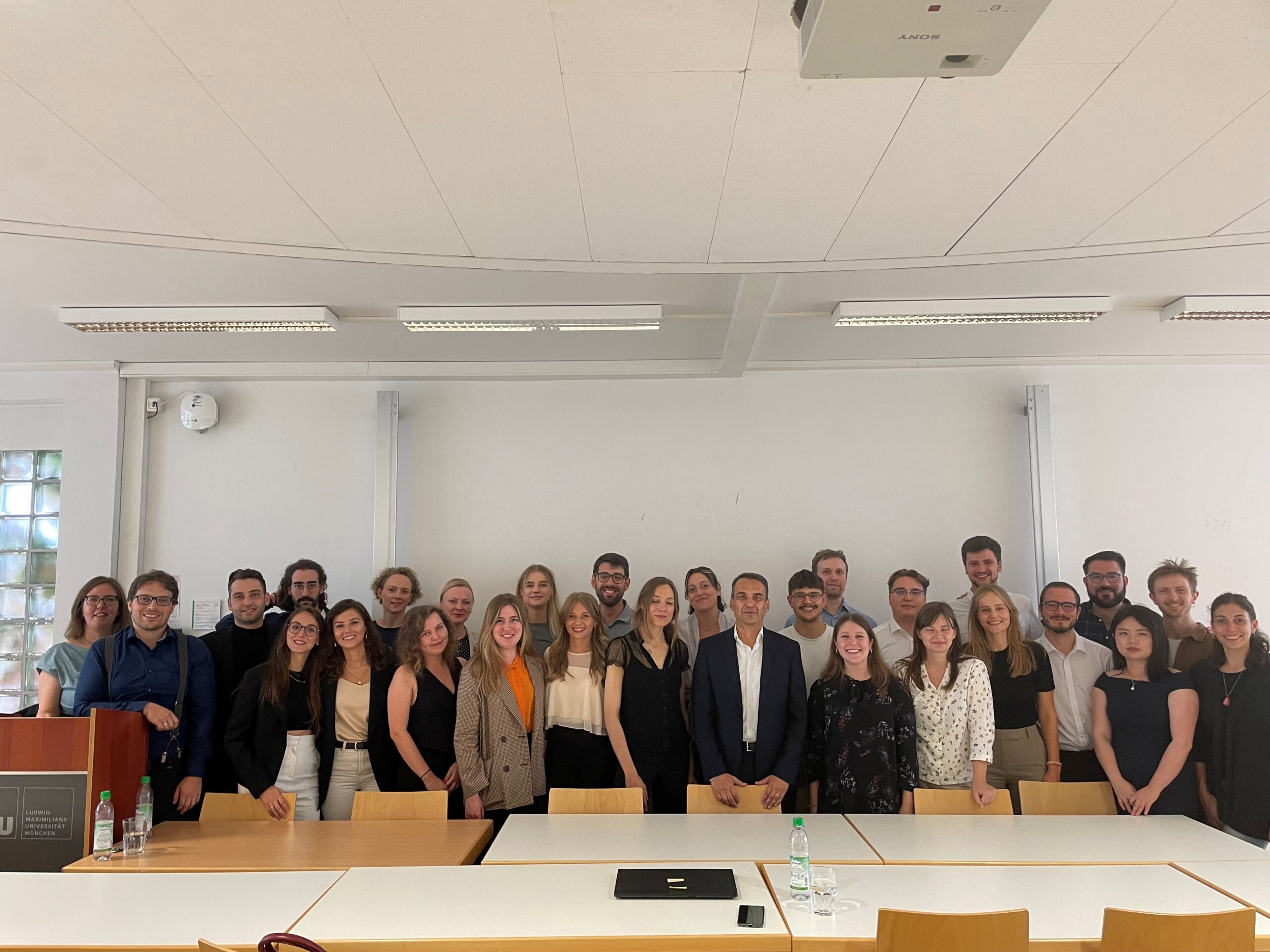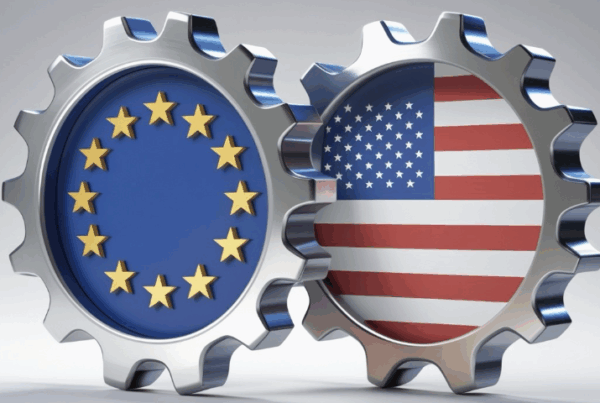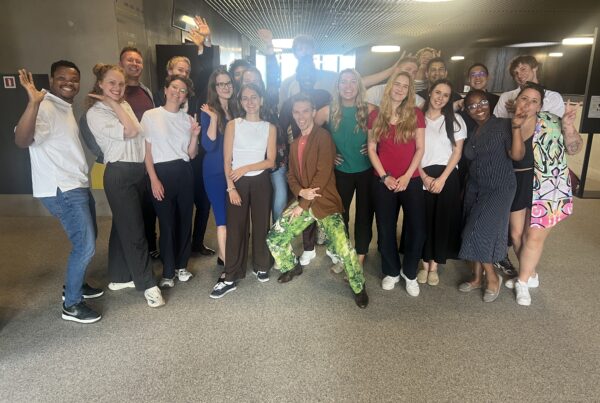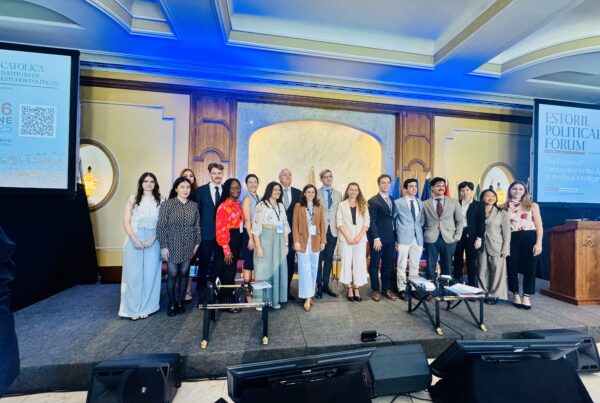
Report: “Crisis? What Crisis?
The Dialectics of European Integration”
12-15 September 2023 | Ludwig-Maximilians-Universität München, Munich
In this year’s summer school, co-organised with the Ludwig Maximilian University of Munich (LMU), participants examined the history, role, and function of crisis in European integration. Digging below the over-inflated rhetoric, students and speakers explored it as a complex mechanism within an on-going historical process.
Dr Anne-Isabelle Richards (University of Leiden) opened proceedings by situating ‘project Europe’ in a longer-term global perspective. Focusing on the interwar years, she located it in relation to a larger imperial project where, in one iteration, it was considered a means of settling and preventing conflict over colonial interests. Anne-Isabelle also pointed to the role of Asia and Africa in defining an integrated European identity, both imaginatively and physically. She described a proposal for ‘Eurafrica’, a union of European nations and their colonies in Africa intended to reassert the values of European civilisation (Africa was preferred as the prevailing racism considered it a cultural tabula rasa while Asia, although subject to orientalism, was acknowledged to have had a history of civilisation and a future with independent nation states).
Later, Professor Juliane Prade-Weiss (LMU, Munich), Dr Moritz Weiss (LMU, Munich), and independent Bulgarian journalist Martin Dimitrov scrutinised the rhetoric of crisis. Juliane noted its importance for giving form and structure to the unknown. Moritz observed how dominant tropes shifted, a few years ago ‘war’ was the preferred metaphor which had more of a pro-active quality, crisis could paralyse. Martin commented on the pressure journalists felt to be competitive in a crowded information environment, especially online. This could aggravate tendencies toward sensationalism. In the afternoon, students workshopped European identity, highlighting the social and colonial contexts that both grant and deny access to idealised European lifestyles where people work, study, and generally move freely around Europe.
Day 2 sustained the pace with an early start to watch President of the European Commission, Ursula von der Leyen give her second State of the European Union address. After this, we were joined by Acting Head of the Regional Representation of the European Commission, Dr Renke Deckarm, journalist Karoline Beisel (Sueddeutsche Zeitung), and Danai Ellina, Research Assistant in Financial Markets at the Centre for European Policy Studies, for their ‘first response’ to the speech. Karoline noted the economic emphasis given to the Green New Deal and the lack of reference to the Future of Europe conference, while Renke observed a subtly clever acknowledgement of a Latin American campaign to resist the War in Ukraine. Danai was surprised not to hear more concrete mention of economic governance regulations. All agreed that this was a careful speech, sensitive to geo-political climate, and possibly anticipating a campaign for a second presidential term.
Having listened to President von de Leyen exult Europe to heed the ‘Call of History’ in the morning, Professor Kiran Klaus Patel (LMU, Munich) shared what history tells us about European integration. Kiran focused on the 1970s, an analogous decade to now, he argued, in the sense of it being a period of consolidation, following the heavy foundational work of treaty formation, made harder by a series of complex crises, both internal (eg., directed at the union itself) and external (events beyond the Union which it had nevertheless to respond to). Close examination of these crises and their aftereffects showed the EU had adopted a strategy of isolation, fission, through putting firewalls in place. Not only had this enabled it to survive but also to thrive by entangling national interests, dividing responsibility, and incrementally increasing its own capacities following expansion.
The opening panel on Day 3 picked up these threads with a lively discussion on Pro-European Euro-Scepticism. Drawing on his research, Dr Thomas Rohringer (LMU, Munich) pointed out how people who supported the idea of Europe often became more divided over specific policies. Dr Emilia Palonen (University of Helsinki) discussed importance of scepticism as part of a process of ‘us-building’, which, as Professor Philipp Müller (Sciences Po, Paris/ Hamburg Institute for Social Research) argued, was a constitutive part of European democracy as a process of balancing diverse interests. The panel focused here on the EU, but in the student workshop that followed the question of whether we over-focus on the EU as a vehicle of integration when we know, from our own lives, of alternative models of transnational encounter and co-operation. Did the EU have limits? Was it over-reliant on an adversarial model of competing national interests for survival?
We followed this thread into the afternoon where we discussed security and differential integration. Dr Stefan Jagdhuber (Acatech, Munich) began by defining exactly what differential integration meant in practice. Professor Tanja Börzel (FU, Berlin), coming to us via live stream from America, gave an electrifying commentary on the tension between deepening EU integration through treaty change, and widening it to bring in prospective members who face a threat from Russian aggression but do not currently meet membership criteria, especially on the question of democracy. How far, Tanja asked, should normative values be strained in response to the geo-political moment? Dr Alexandra Oancā (KU Leuven) picked up on how differentiated integration re-ordered political space, posing literal and figurative violence by imposing a class system of membership. Dylan Macchiarini-Crosson, a researcher in the EU Foreign Policy Unit for the Centre of European Policy Studies, replied that differentiated integration was inevitable when member states had such different security architecture in place (eg., whether they were members of NATO or the UN security council) – this was the practical reality that policy makers had to deal with.
On Day 4, student presenters responded to the prompt: Is Project Europe In Crisis? Mads Jedzini, Juhu Toppari, Sten Torpan, and Ernesto Navarro Lopez emphasised the ‘two-faced’ aspect of crisis that created and destroyed. Brais Freire Branã, Jonne de Groot, Cathrine Damkjaer, Luisa Moratelli, and Andrada Groza wanted to stress the historicity of both crisis and the EU as an institution formed through crisis. They wondered whether it could respond to very distinct forms of crisis such as climate change. Viktoriya Husak, Alesia Zhuk, Emanuele Albanese, and Fu Zhao believed challenge was a more pertinent word than crisis, but wondered how the EU would stand up to the unique challenges posed by AI and the information age. Carl Schüppel, Matēj Appelt, Martina Cacciani, Giuila Lisdero, and Stoycho Velev brought attention to the complexity of dialectic, the push and pull between pragmatism and ideals but were sceptical about some aspects of the ‘failing forward’ narrative. Aislinn Hughes, Martina Antico, Sofia Brighi, and Martin Dimitrov wondered whether conflict models ever produced more than a superficial sense of common interest and wondered if that would be adequate for tackling phenomena like Climate Change.
What emerged throughout the School was that crisis plays a more multi-faceted role in the history of the EU than is often acknowledged. Nevertheless, the forms, speed, and scale of crises which are unfolding now may only be exacerbated by isolation and pragmatism, indeed, they may require a substantially different account of co-operation and co-existence altogether.
Many thanks to the LMU, Munich organisers: Professor Kiran Klaus Patel, Dr Thomas Rohringer, and Dr Stefan Jagdhuber.



